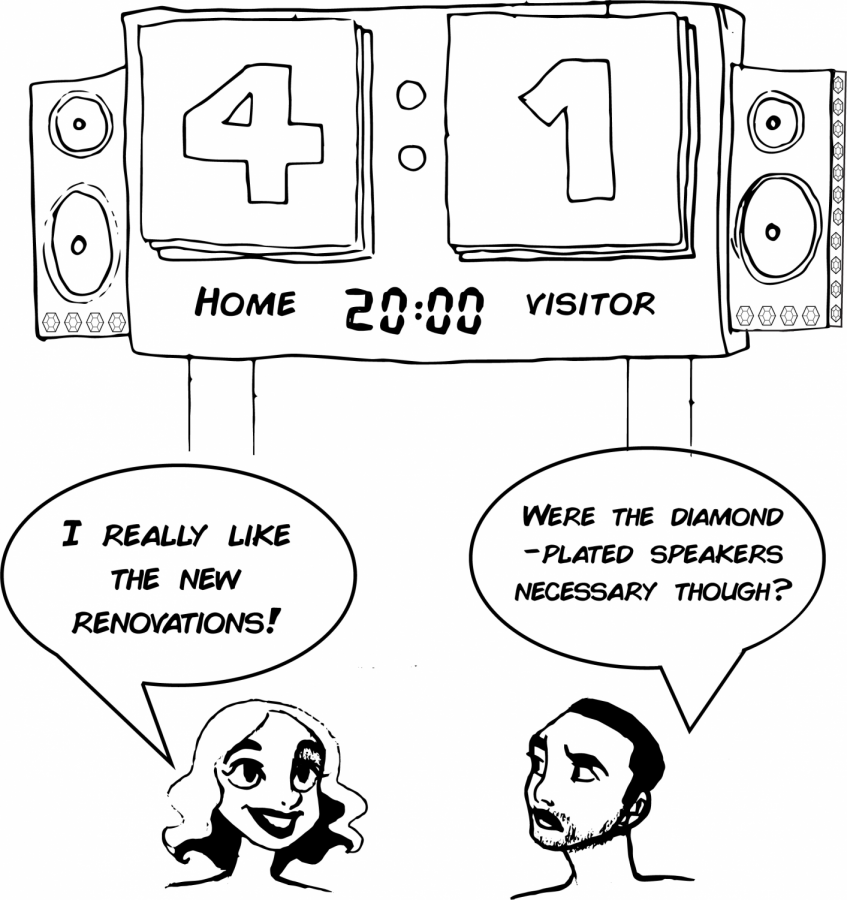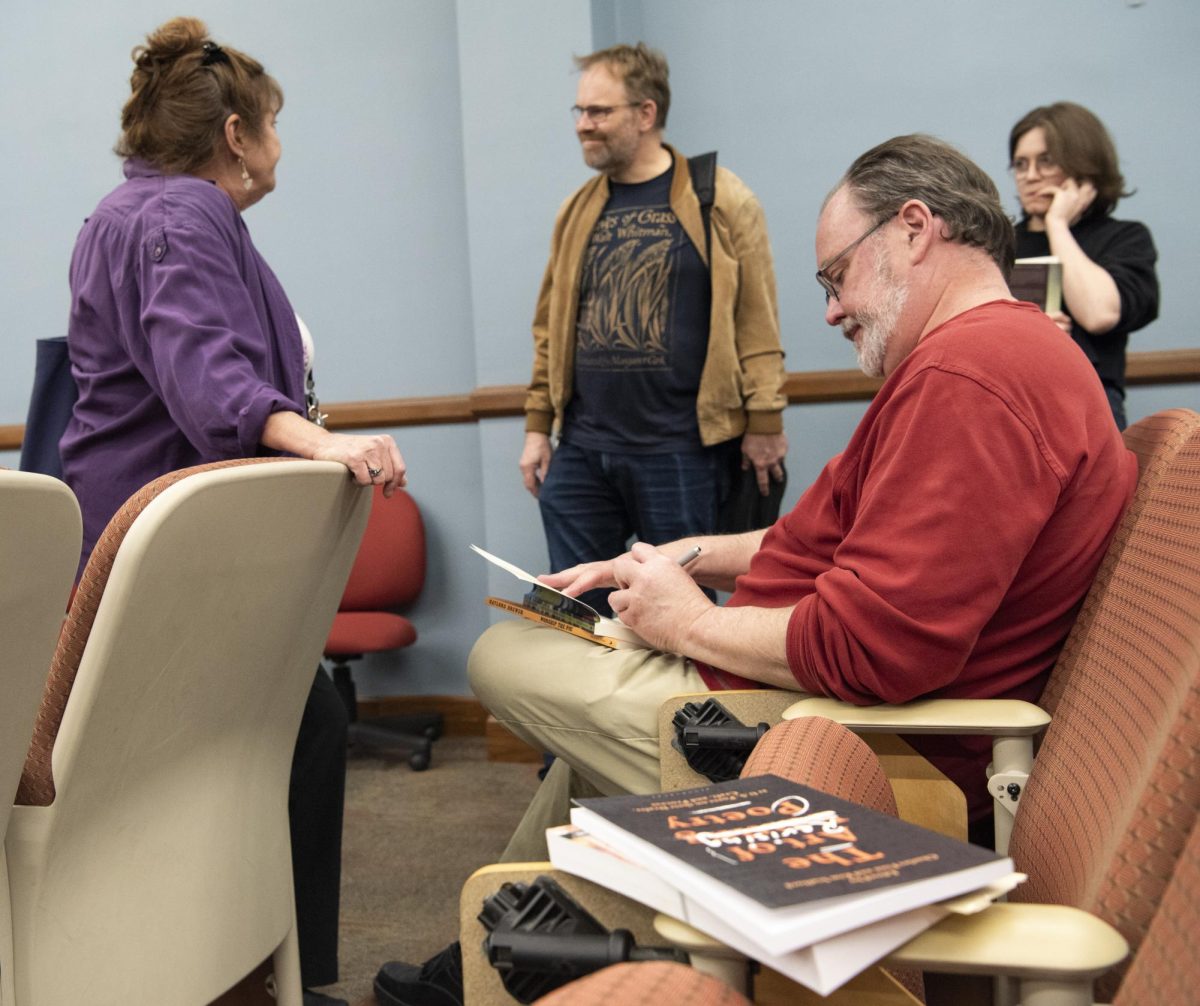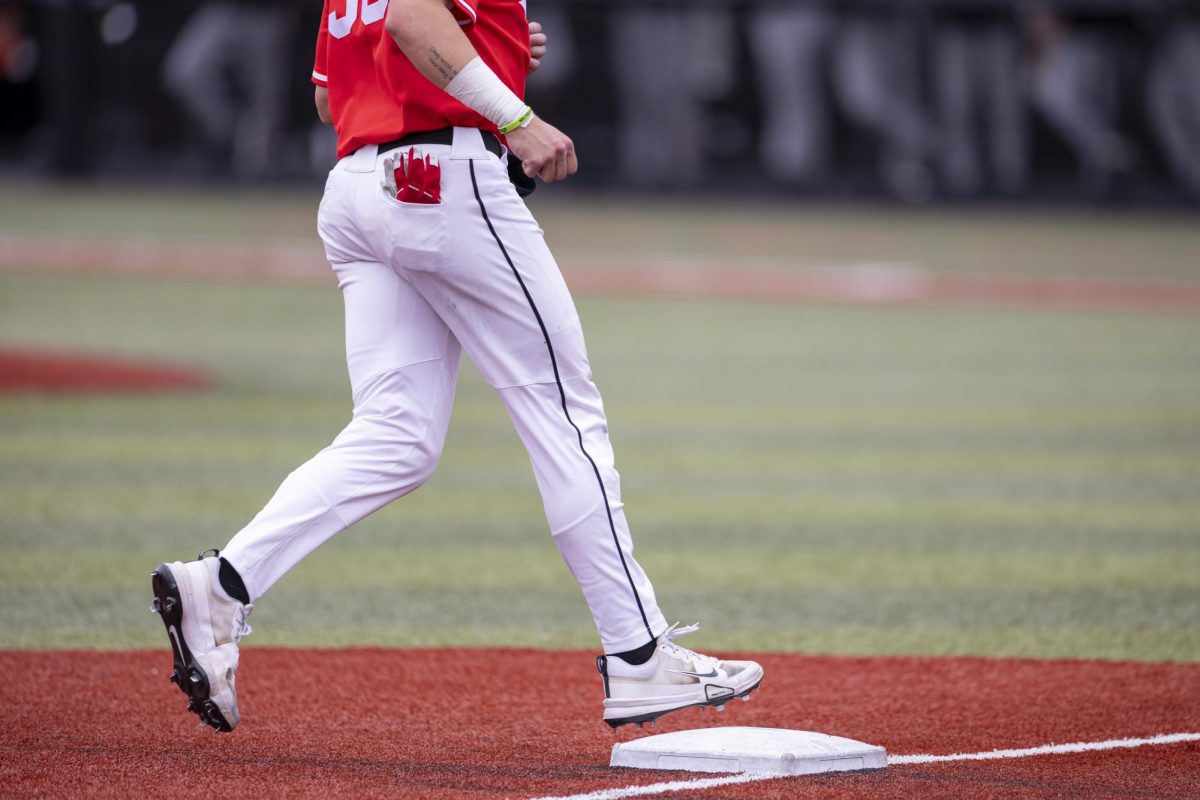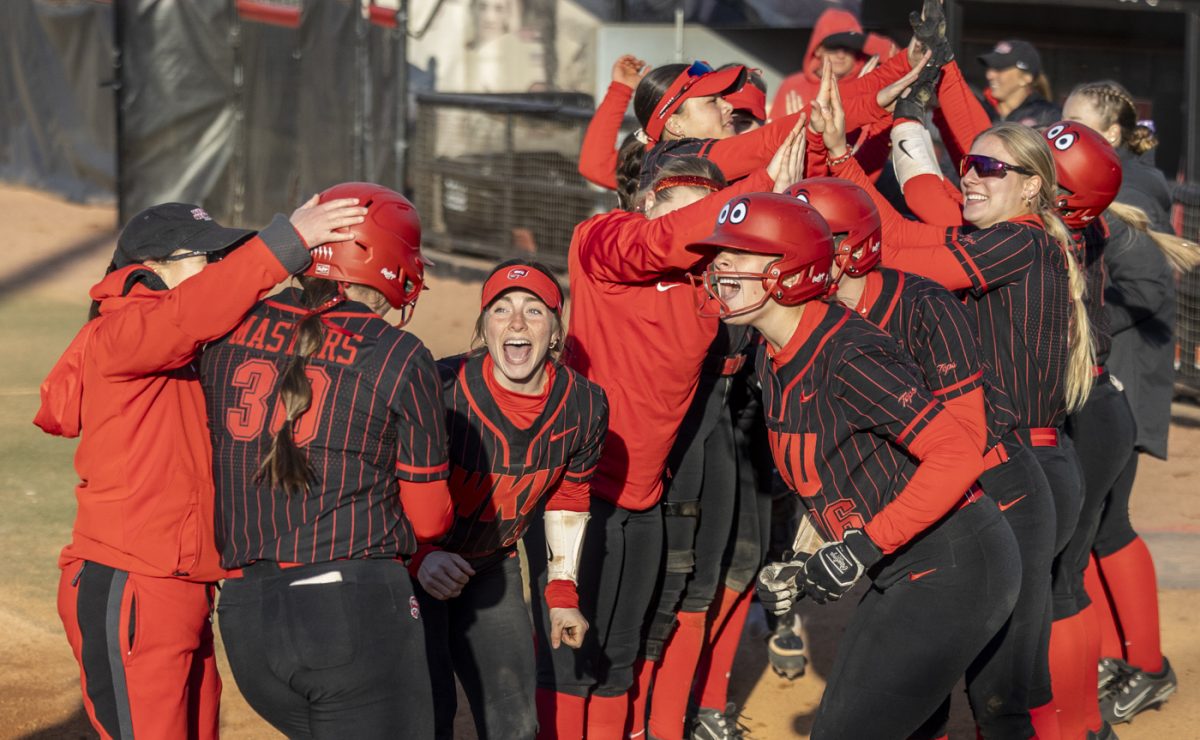Editorial: Don’t allow the cost of athletic renovations to fall on students
February 13, 2018
The Issue: The Hilltopper Athletic Foundation recently reported a lack in funding to the tune of $5.5 million for its annual fund. That, in addition to the university’s $40 million central budget crisis, presents the very real potential that student fees will increase to help offset the university’s dire financial predicament. Despite these issues, the HAF has announced a “strategic fundraising campaign” to renovate the video boards at Houchens-Smith Stadium and Diddle Arena to “increase the size of the viewing area by nearly 400 percent.”
Our Stance: The HAF could not have picked a worse time to announce and implement these renovations. While maintaining a Division I athletic program can attract potential students, the athletic program at WKU has partly relied on university and student contributions in the past, specifically through a $218 athletics fee included in student costs. It’s not the appropriate time to be making these unnecessary, costly additions while tough budget cuts are being forced on everyone else.
According to a news story recently published in the College Heights Herald, “the fee for athletics is the highest mandatory student fee at WKU.” That fee, the highest mandatory student fee at WKU, comes in addition to an approximated $40 million dollar university budget deficit that is a result of a combination of low enrollment, state pension obligations and other various proposed cuts made to higher education in Gov. Matt Bevin’s budget proposal.
So the question we’re all wondering has to be, where is the HAF getting the money to fund these costly renovations? Better yet, what happens if this “strategic fundraising campaign” doesn’t raise the money necessary to fully fund the new scoreboards?
The contractors in charge of the renovation projects, which is set to begin this Wednesday for Houchens-Smith Stadium and after May commencement for Diddle Arena, are going to be paid. How much of the final cost, which is set right now at $2.4 million, will be placed on the university and its students is still up for speculation.
However, Todd Stewart, athletic director, has said the project will be entirely funded by private donations, per the Bowling Green Daily News.
If history tells us anything, funding from the university to the athletic department will have to increase but will not be able to given the university’s lack of financial resources. This leaves one to speculate that an increase in the student athletic fee is on the horizon. According to the most recent Herald article on student fees, WKU funding decreased by almost 19 percent in the 2015-2016 school year, while the total revenue student fees rose by nearly 11 percent.
It is important to note that, annually, the athletic department’s total revenue has been supported by school funds and student fees to match expenses like scholarships, coaching and facilities. The student athletics fee also may not even be touched if the HAF’s fundraising campaign is effective or they decide to scrap the renovations altogether within the next few days.
It would be wrong to claim that an increase in funds to the athletic department wouldn’t attract more students who want to attend a school with a successful Division I athletic tradition. Ask just about any student at the University of Kentucky and they’re sure to mention “Big Blue Nation.” Even President Timothy Caboni was quoted in a meeting with Herald editors as saying “I came from the University of Kansas. If you ask someone what they know about the University of Kansas, they will tell you one of two things: Jayhawk or basketball. They don’t know that it was the No. 2 pharmacy school in the nation for research.”
The issue arises when it becomes a habit for the athletics program, or the university in general, to count on students to bail them out of costly projects when there’s just no money for them right now. If the administration wants to build and maintain trust with its student body, not allowing student fees to increase as a result of expensive project goals is an excellent place to start.
{{tncms-inline content=”<p>Editorials reflect a majority opinion of the College Heights Herald Editorial Board. The board is made up of students. The members of this semester’s editorial board include:</p> <p>Andrew Henderson, Monica Kast,&nbsp;Evan Heichelbech, Mason Davis, Brook Joyner, Nic Huey, Jeremy Chisenhall, Taylor Huff, Olivia Mohr, Emma Collins, Craig Ostertag and Spencer Harsh.</p>” id=”9428e9b1-e366-4384-bde5-ff55a32a099f” style-type=”highlights” title=”Editorial Board” type=”relcontent”}}













